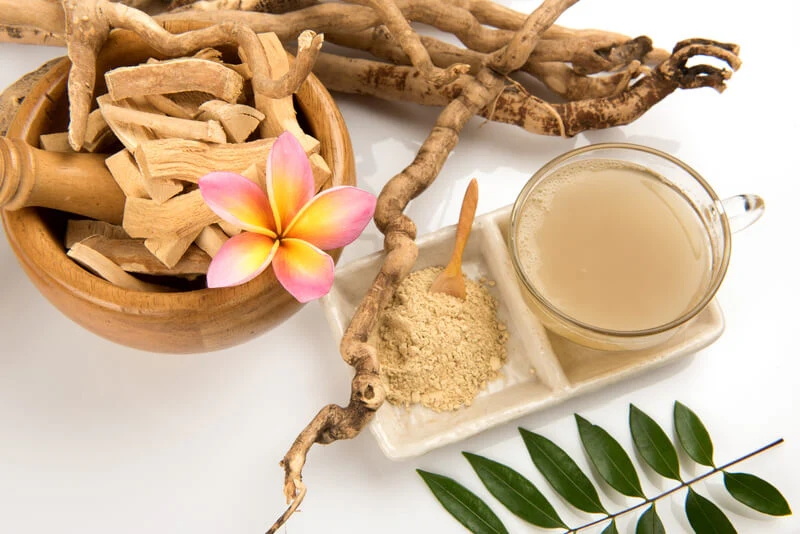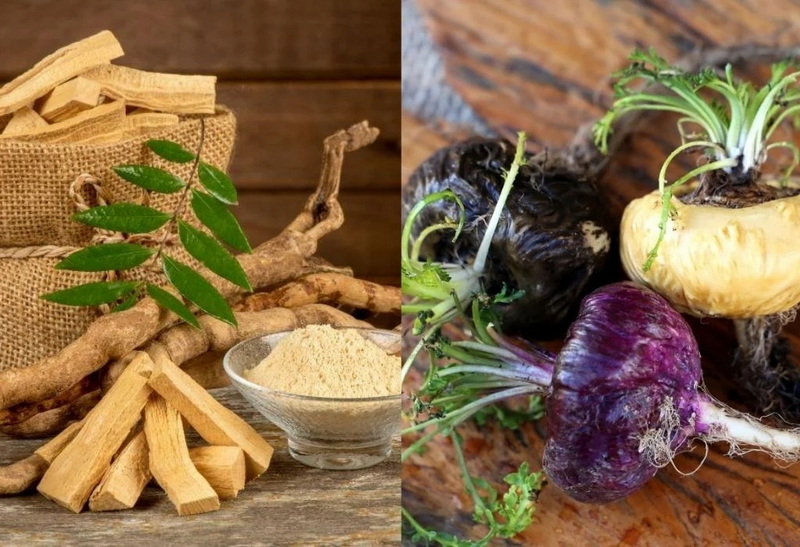Content Menu
● Introduction to Tongkat Ali
>> Bioactive Compounds
● Anti-Inflammatory Effects
>> Mechanisms of Action
● Applications and Benefits
>> Traditional Medicine
>> Modern Applications
● Scientific Evidence
>> Animal Studies
>> Human Trials
● Potential Risks and Side Effects
>> Interactions with Medications
● Future Research Directions
>> Potential Therapeutic Applications
>> Integration with Modern Medicine
● Conclusion
● FAQs
>> 1. What are the primary bioactive compounds in Tongkat Ali responsible for its anti-inflammatory effects?
>> 2. How is Tongkat Ali traditionally used in medicine?
>> 3. What are some modern applications of Tongkat Ali?
>> 4. What scientific evidence supports the anti-inflammatory effects of Tongkat Ali?
>> 5. Are there any human trials that demonstrate the anti-inflammatory effects of Tongkat Ali?
● Citations:
Tongkat Ali, scientifically known as Eurycoma longifolia, is a plant native to Southeast Asia, particularly in Malaysia and Thailand. It has been used for centuries in traditional medicine for its various health benefits, including anti-inflammatory properties. This article will delve into the anti-inflammatory effects of Tongkat Ali extract, exploring its mechanisms, applications, and supporting evidence from scientific studies.

Introduction to Tongkat Ali
Tongkat Ali is renowned for its diverse pharmacological properties, which include anti-inflammatory, antinociceptive, antipyretic, and gastroprotective effects. The plant's bioactive compounds, such as quassinoids, alkaloids, and bioactive steroids, are responsible for these therapeutic benefits.
Bioactive Compounds
- Quassinoids: These compounds are known for their anti-inflammatory and antimalarial properties.
- Alkaloids: Canthin-6-one and β-carboline alkaloids contribute to the plant's antimicrobial and anti-anxiety effects.
- Bioactive Steroids: These compounds are linked to the plant's aphrodisiac and testosterone-enhancing properties.
Anti-Inflammatory Effects
The anti-inflammatory effects of Tongkat Ali have been extensively studied in both animal models and human trials. These studies have shown that Tongkat Ali extracts can effectively reduce inflammation by inhibiting the formation of edema and suppressing granuloma formation.
Mechanisms of Action
1. Inhibition of Pro-Inflammatory Pathways: Tongkat Ali extracts may inhibit pathways involved in inflammation, such as the NF-κB pathway, which plays a crucial role in the inflammatory response.
2. Antioxidant Activity: The antioxidant properties of Tongkat Ali help reduce oxidative stress, which is often associated with inflammation.

Applications and Benefits
Traditional Medicine
In traditional Thai medicine, Tongkat Ali roots are used to treat inflammation, pain, and fever. The plant is also part of the Chantaleela recipe, which is prescribed for fever relief and as an anti-inflammatory.
Modern Applications
- Supplements: Tongkat Ali is commonly used in supplements to enhance male fertility and testosterone levels.
- Wound Healing: The plant's anti-inflammatory and antioxidant effects may aid in wound healing by promoting angiogenesis.
- Stress Relief: Tongkat Ali is believed to reduce stress and improve mood, which can indirectly contribute to reduced inflammation by mitigating stress-induced inflammatory responses.
Scientific Evidence
Numerous studies have demonstrated the anti-inflammatory effects of Tongkat Ali. For instance, ethanolic extracts of Tongkat Ali have been shown to reduce ear edema and hind paw edema in animal models, indicating strong anti-inflammatory activity.
Animal Studies
Animal studies provide significant evidence for Tongkat Ali's anti-inflammatory effects. These studies often involve models of acute inflammation, where Tongkat Ali extracts are administered to assess their ability to reduce swelling and inflammation.
Human Trials
While most human trials focus on Tongkat Ali's effects on testosterone and stress hormones, its anti-inflammatory properties are often indirectly supported by improved overall health outcomes. For example, reduced stress levels can lead to lower systemic inflammation.
Potential Risks and Side Effects
While Tongkat Ali is generally considered safe, high doses may cause side effects such as insomnia, anxiety, and increased heart rate. It is essential to consult with a healthcare provider before using Tongkat Ali supplements, especially if you have underlying health conditions.
Interactions with Medications
Tongkat Ali may interact with certain medications, such as blood thinners and diabetes medications. Therefore, individuals on prescription medications should exercise caution when using Tongkat Ali supplements.
Future Research Directions
Future studies should focus on exploring the specific mechanisms by which Tongkat Ali exerts its anti-inflammatory effects. Additionally, more human trials are needed to confirm its efficacy in treating inflammatory conditions.
Potential Therapeutic Applications
Given its anti-inflammatory properties, Tongkat Ali could be explored as a complementary treatment for conditions like arthritis, where chronic inflammation is a significant concern.
Integration with Modern Medicine
Integrating Tongkat Ali into modern medicine could involve developing standardized extracts that are consistent in their bioactive content, ensuring reliable therapeutic effects.
Conclusion
Tongkat Ali extract indeed possesses anti-inflammatory properties, supported by both traditional use and scientific evidence. Its bioactive compounds contribute to these effects, making it a valuable component in traditional medicine and modern supplements. Further research is needed to fully explore its potential in treating inflammatory conditions.

FAQs
1. What are the primary bioactive compounds in Tongkat Ali responsible for its anti-inflammatory effects?
The primary bioactive compounds include quassinoids, alkaloids, and bioactive steroids, which contribute to its anti-inflammatory properties.
2. How is Tongkat Ali traditionally used in medicine?
Tongkat Ali is traditionally used in Thai medicine to treat inflammation, pain, and fever, often as part of the Chantaleela recipe.
3. What are some modern applications of Tongkat Ali?
Modern applications include its use in supplements for enhancing male fertility and testosterone levels, as well as potential benefits in wound healing.
4. What scientific evidence supports the anti-inflammatory effects of Tongkat Ali?
Studies have shown that Tongkat Ali extracts can reduce inflammation in animal models by inhibiting edema formation and suppressing granuloma growth.
5. Are there any human trials that demonstrate the anti-inflammatory effects of Tongkat Ali?
While human trials primarily focus on testosterone and stress hormone effects, indirect evidence supports its overall health benefits, which may include anti-inflammatory effects.
Citations:
[1] https://pmc.ncbi.nlm.nih.gov/articles/PMC10381342/
[2] https://pmc.ncbi.nlm.nih.gov/articles/PMC3669033/
[3] https://journals.iium.edu.my/kom/index.php/imjm/article/download/2228/1356/12561
[4] https://www.verywellhealth.com/tongkat-ali-8715064
[5] https://pubmed.ncbi.nlm.nih.gov/33541567/
[6] https://pubmed.ncbi.nlm.nih.gov/37511840/
[7] https://www.publish.csiro.au/hc/pdf/HC22143
[8] https://www.mdpi.com/2076-3417/14/11/4372
[9] https://tjnpr.org/index.php/home/article/view/624
[10] https://publichealthinafrica.org/index.php/jphia/article/download/87/95






























